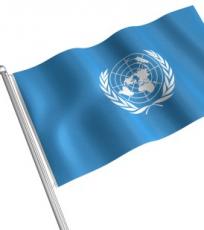UN Committee reports on economic, social and cultural rights in New Zealand
Thu 12 Apr 2018
The UN Committee on Economic, Social and Cultural Rights has published their concluding observations on the fourth periodic review of economic, ...

The UN Committee on Economic, Social and Cultural Rights has published their concluding observations on the fourth periodic review of economic, social and cultural rights in New Zealand.
The Committee welcomes the legislative, institutional and policy measures taken to ensure a high level of protection of economic, social and cultural rights in the State party.
The Committee raised concerns about a number of issues including high rates of domestic and gender-based violence, bias against Māori, and the legal enforceability of the Treaty of Waitangi.
The Committee is an independent body that monitors States' compliance with the International Covenant on Economic, Social and Cultural Rights (ICESCR). The Committee examines individual countries' compliance with their human rights obligations under the ICESCR.
The latest review of New Zealand's performance took place in late 2017 and early 2018. The UN Committee reviewed the 4th periodic report presented by the NZ Government at the 63rd session of the Committee in March 2018. Following the review, the Committee published their concluding observations.
One of the areas in the concluding observations focuses on Protection from violence, stating:
"12. The Committee is concerned about the prevalence of domestic and gender-based violence in the State party, impacting particularly Māori women and girls, despite some positive measures taken in this regard. The Committee notes the legislative reforms to the child protection system undertaken by the State party, and welcomes the establishment of the Ministry for Children in 2017. It, however, remains concerned that the extent of child abuse in the family and in State care, in particular experienced by children with disabilities and Māori children, remains considerable in the State party. Moreover, the Committee is concerned that claims of historic abuse of children in State care have not been effectively investigated (art. 10).
13. The Committee recommends that the State party take a holistic approach in addressing violence in the family and child abuse. In particular, the Committee recommends that the State party:
(a) Adopt a comprehensive and crosscutting strategy to eradicate family violence and ensure effective implementation of the new law on family violence;
(b) Intensify its measures to protect all victims of domestic and gender-based violence, paying particular attention to Māori women and girls, while bearing in mind the historic grief and trauma experienced by them when developing solutions in partnership with Māori people and relevant civil society organisations;
(c) Continue investing in addressing child abuse while paying particular attention to children with disabilities and Māori children. To that end, the State party should ensure that the Ministry for Vulnerable Children is fully equipped and operational;
(d) Take steps to bring perpetrators of domestic and gender-based violence to justice and punish them adequately, if convicted, and strengthen awareness-raising campaigns and provision of training to law enforcement officers to sensitize them to all forms of domestic violence and child abuse;
(e) Effectively investigate claims of abuse of children in State care and operationalise the Royal Commission of Inquiry into Historical Abuse in State Care, and ensure it is equipped with resources necessary to discharge efficiently its duties."
The Committee also raised concerns "... about the entrenched unconscious bias towards Māori in education, health, justice and social services, negatively affecting their enjoyment of economic, social and cultural rights." It also expressed concern "... that the Treaty of Waitangi is still not legally enforceable nor referred to in the Constitution Act, and that the Waitangi Tribunal’s recommendations are not binding, and are frequently ignored by the Government." It recommended that the Government:
"Take immediate steps, in partnership with Māori representative institutions, to implement the recommendations of the Constitutional Advisory Panel regarding the role of the Treaty of Waitangi within its constitutional arrangements together with the proposals put forward in the (2016) Matike Mai Aotearoa report"
The Committee also recommended that New Zealand adopt a human rights based national housing strategy, and addressed the rights to social security and to an adequate standard of living.
You can read the full report from the Committee's concluding observations.
More information
For a summary of the review process and concluding observations see the Peace Movement Aotearoa press release.
You can view all documents related to this review period on the United Nations Human Rights - Office of the High Commissioner's website (scroll down for New Zealand).
The Ministry of Justice is responsible for administering the ICESCR in New Zealand.
Related news
The New Zealand Government is currently compiling feedback for the next Universal Periodic Review of the UN Human Rights Council. The report is due in 2019. Public submissions by non-government organisations and individuals are due on 21 June 2018.
New Zealand's performance under the Convention on the Elimination of All Forms of Discrimination against Women (CEDAW) is being examined at the 70th session of the UN Committee in July 2018.
The Human Rights Commission has been consulting on CEDAW and the Convention on the Rights of Persons with Disabilities (CRPD) this year.
Selected media
Geneva human rights committee 'shocked' at NZ's human rights report card, Stuff, 24.04.2018
Waitangi snub noted in UN censure, Waatea News, 05.04.2018
United Nations report reiterates human rights concerns in Waitangi Tribunal, Newshub, 05.04.2018
UN worried govt not doing enough to support Maori, Newstalk ZB, 05.04.2018
Waitangi Tribunal's recommendations frequently ignored - UN report, Radio NZ, 04.04.2018
Image: UN flag


